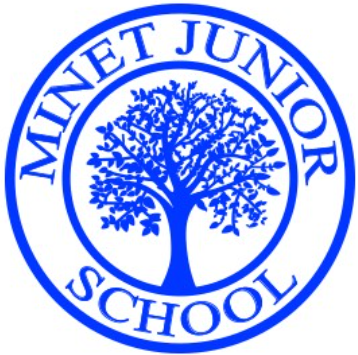Relationships, Health & Sex Education
Relationships, Health and Sex Education (RSE/RSHE)
As part of their Science lessons in the Animals Including Humans unit and our relationships unit in PSHE, our students will take part in a series of lessons about Relationships and Health Education. We define this as learning about caring friendships, families and people who care for them, respectful relationships, online relationships, being safe, growing up and puberty.
We believe that knowledge empowers and protects children as long as it is age-appropriate. At Minet, we believe it is vital to prepare children with accurate, age-appropriate and scientific knowledge about puberty before they transfer to secondary school.
Correct terminology for body parts is introduced early to normalise this biological vocabulary and to support safeguarding. These words are not used in isolation but always in conjunction, ensuring children know these are private parts of their bodies.
Since 2020, our RSE curriculum includes different families including same-sex relationships. Teaching styles and planning will provide suitable learning challenges, a response to diverse needs, a range of different activities and an attempt to overcome potential barriers to learning. Where identified, small group work will be carried out with children who have different needs in their social and emotional learning.
Right to Withdrawl:
Parents do not have the right to withdraw their children from statutory Relationships and Health Education lessons or the statutory National Science Curriculum. At Minet Junior School, we do not cover any content that is non-statutory. Therefore, there should not be a need to withdraw children from lessons.
RSE Curriculum Overview:
Year 3:
- Children will learn that in humans and animals lots of changes happen as they grow from babies to fully-grown (i.e. puppy to dog, calf to cow, baby to adult).
- Children will understand the names for male and female body parts and understand some of the changes that will occur as they grow older
- Children will learn about the PANTS rule (https://www.nspcc.org.uk/keeping-children-safe/support-for-parents/pants-underwear-rule/ )
- Children will understand that babies grow inside a mother’s womb and get their nutrients to grow from the mother.
- Children will explain what things babies need in order to survive (food, shelter, clothing, care).
- Children will explore stereotypes and family roles
- Children will explore their thoughts, feelings and hopes for the new school year.
Year 4:
- Children will understand that their characteristics and traits come from their parents (i.e. eye colour, hair colour, skin colour)
- Children will understand the terms for internal and external body parts for male and female bodies and how bodies will change in puberty
- Children will learn about the changes that happen to females during puberty (menstruation)
- Children will understand how to manage conflict with friends
- Children will understand that some changes are out of their control (i.e. loss, changing family structures, etc.)
- Children will learn coping skills for dealing with change in their lives.
Year 5:
- Children will explore and understand self-esteem and body image
- Children will learn about physical and emotional changes for males and females in puberty
- Children will understand the menstrual cycle
- Children will explore what they are looking forward to when they become a teenager
- Children will explore their thoughts, feelings and hopes for the new school year
Year 6:
- Children will be aware of their self-image and body image
- Children will learn about the physical and emotional changes for males and females in puberty
- Children will learn about the importance of personal hygiene during puberty
- Children will explore how to develop and have a positive self-esteem
- Children will understand different types of relationships they may have as they grow older (i.e. friendships, boyfriend/girlfriend) and boundaries
- Children will explore things they are looking forward to about secondary school and worries they have
- Children will complete activities to support their transition to secondary school.
PANTS - Keeping Your Child Safe
Talk PANTS is a simple acronym designed by the NSPCC (NSPCC Talk Pants Website) to help children understand body autonomy - that their body belongs to them - and that they should tell someone they trust if something ever makes them feel upset or worried.

What are the PANTS Rules?
Privates are private:
Your underwear covers up your private parts and no one should ask to see or touch them. Sometimes doctors, nurses or family members might have to. These people should always explain why, and should ask you if it’s OK first.
Always remember your body belongs to you:
Your body belongs to you. No one should ever make you do things that make you feel embarrassed or uncomfortable. If someone asks to see or tries to touch you underneath your underwear say 'NO' – and tell someone you trust and like to speak to.
No means no:
No means no and you always have the right to say ‘no’ – even to a family member or someone you love. You’re in control of your body and the most important thing is how YOU feel. If you want to say ‘No’, it’s your choice.
Talk about secrets that upset you:
There are good and bad secrets. Good secrets can be things like surprise parties or presents for other people. Bad secrets make you feel sad, worried or frightened. You should tell an adult you trust about a bad secret straight away.
Speak up, someone can help:
Talk about stuff that makes you worried or upset. If you ever feel sad, anxious or frightened you should talk to an adult you trust. This doesn't have to be a family member. It can also be a teacher or a friend's parent – or even Childline.
PANTS guides for parents and carers:
Further Information:
Please see the links below for further information on government guidance with regards to Relationships, Health and Sex Education.
